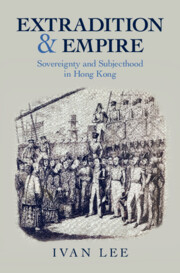Refine search
Actions for selected content:
171 results
3 - Fact finding
-
- Book:
- The Art of Legal Problem Solving
- Published online:
- 11 March 2024
- Print publication:
- 01 July 2027, pp 24-41
-
- Chapter
- Export citation
1 - Introduction
-
- Book:
- The Art of Legal Problem Solving
- Published online:
- 11 March 2024
- Print publication:
- 01 July 2027, pp 1-6
-
- Chapter
- Export citation
7 - Writing it up
-
- Book:
- The Art of Legal Problem Solving
- Published online:
- 11 March 2024
- Print publication:
- 01 July 2027, pp 97-102
-
- Chapter
- Export citation
6 - Putting it all together
-
- Book:
- The Art of Legal Problem Solving
- Published online:
- 11 March 2024
- Print publication:
- 01 July 2027, pp 68-96
-
- Chapter
- Export citation
5 - Analysing a problem
-
- Book:
- The Art of Legal Problem Solving
- Published online:
- 11 March 2024
- Print publication:
- 01 July 2027, pp 55-67
-
- Chapter
- Export citation
4 - Statutory interpretation and the criminal law
-
- Book:
- The Art of Legal Problem Solving
- Published online:
- 11 March 2024
- Print publication:
- 01 July 2027, pp 42-54
-
- Chapter
- Export citation
2 - Fundamentals of problem solving
-
- Book:
- The Art of Legal Problem Solving
- Published online:
- 11 March 2024
- Print publication:
- 01 July 2027, pp 7-23
-
- Chapter
- Export citation
1 - Neurorehabilitation in Criminal Justice
-
- Book:
- Minds, Freedoms and Rights
- Published online:
- 21 December 2025
- Print publication:
- 22 January 2026, pp 1-18
-
- Chapter
-
- You have access
- Open access
- HTML
- Export citation
1 - Introduction to Law for Human–Computer Interaction
-
- Book:
- Human–Computer Interaction and U.S. Law
- Published online:
- 12 December 2025
- Print publication:
- 08 January 2026, pp 1-20
-
- Chapter
- Export citation
Judicial Professional Background and Pretrial Detention Outcomes
-
- Journal:
- Journal of Law and Courts ,
- Published online by Cambridge University Press:
- 18 December 2025, pp. 1-24
-
- Article
- Export citation
Trial by Medicine: a landmark interdisciplinary exploration of legal insanity and criminal responsibility in Victorian Britain
- Part of
-
- Journal:
- BJPsych Advances , FirstView
- Published online by Cambridge University Press:
- 27 November 2025, pp. 1-3
-
- Article
-
- You have access
- Open access
- HTML
- Export citation
2 - Lawmaking, Law Enforcement, and “Legalistic Ethical Reasoning”
- from Part I - Drivers of Change in the World of Cultural Property
-
- Book:
- Cultural Property
- Published online:
- 05 November 2025
- Print publication:
- 30 October 2025, pp 34-102
-
- Chapter
- Export citation
Situating guilt: social injustice as a partial excuse
-
- Journal:
- Legal Studies / Volume 45 / Issue 4 / December 2025
- Published online by Cambridge University Press:
- 27 October 2025, pp. 619-637
- Print publication:
- December 2025
-
- Article
-
- You have access
- Open access
- HTML
- Export citation
3 - Examining the Doctrine of Art and Part in Early Modern Scotland
-
-
- Book:
- Law and Constitutional Change
- Published online:
- 26 September 2025
- Print publication:
- 16 October 2025, pp 44-62
-
- Chapter
-
- You have access
- Open access
- HTML
- Export citation
5 - The Sex Wars Come to AIDS
-
- Book:
- Risk and Resistance
- Published online:
- 10 September 2025
- Print publication:
- 09 October 2025, pp 109-144
-
- Chapter
- Export citation
Chapter 3 - The company as a separate legal entity
-
- Book:
- Contemporary Australian Corporate Law
- Published online:
- 11 September 2025
- Print publication:
- 25 September 2025, pp 80-107
-
- Chapter
- Export citation

Extradition and Empire
- Sovereignty and Subjecthood in Hong Kong
-
- Published online:
- 10 September 2025
- Print publication:
- 03 July 2025

Capital Drug Laws in Asia
-
- Published online:
- 07 August 2025
- Print publication:
- 24 July 2025
22 - Generative AI and Criminal Guilt
- from Part III - Generative AI
-
-
- Book:
- The Cambridge Handbook of Generative AI and the Law
- Published online:
- 08 August 2025
- Print publication:
- 07 August 2025, pp 392-404
-
- Chapter
- Export citation
1 - Introduction to Volume III
-
-
- Book:
- Core Concepts in Criminal Law and Criminal Justice
- Published online:
- 09 July 2025
- Print publication:
- 24 July 2025, pp 1-10
-
- Chapter
- Export citation
